Royal British Legion: Reflections on the RBL by one of its longest-serving members in Sheffield as it marks 100 years
and live on Freeview channel 276
Patricia Davey from Frecheville, Sheffield, knows more than most about what it is to serve in the Legion.
She has been a member for more than half its existence.
Patricia said: “I have a long connection, I joined in 1957.
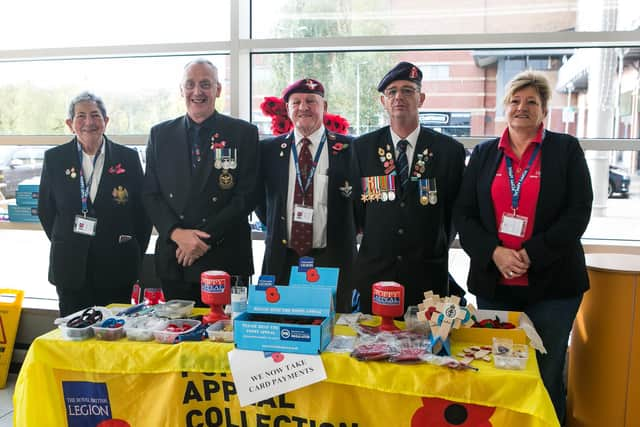

“I come from a military family, all the men folk in my family were regulars – mainly in the Army, a couple in the Royal Marines one or two in the Royal Navy or Merchant Navy.
Advertisement
Hide AdAdvertisement
Hide Ad“My husband served in The Royal Air Force, and one of my cousins served in the Airborne Division.”
Patricia never served in the armed forces herself, but proudly served in the Civil Defence Ambulance Corp for 13 years during the Cold War era.
She is possibly the longest-serving member of the Royal British Legion in Sheffield now.
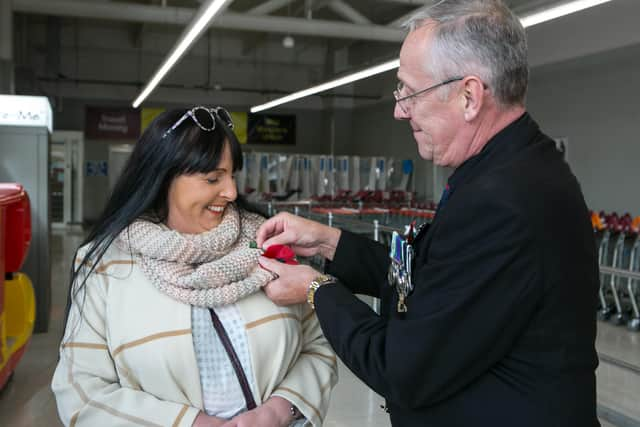

“I joined the Legion when I was either 17 or 18. The year after I joined I went down to town to sell poppies and the lady who carried the Sheffield British Legion's Standard presented it to me and said I was young enough and strong enough to carry it.
Advertisement
Hide AdAdvertisement
Hide Ad“Mrs Birch was a lovely lady in her seventies who had carried that very heavy standard for years, but age and ill health was making it more and more difficult for her to carry on, carrying it.
“I took it home with me at teatime and told my parents that I was now the official Standard bearer,” she explained.
“Bang went my chance of any tea because my father, a regular light infantry man and drill sergeant immediately took me, and the Standard into the back yard – and I spent the next three hours being drilled by him until he was satisfied that I was not going bring dishonour on myself, or the family. I was told ‘Well you'll do, but don't drop the bloody thing’.
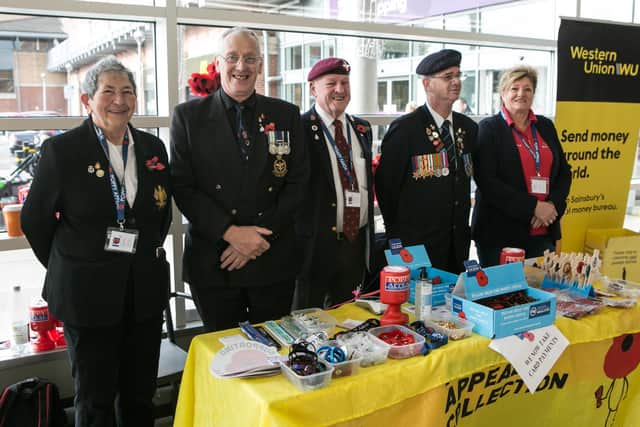

“Each year thereafter Mrs Birch used to walk around the Standard Bearers at the Cenotaph instructing us “open your mouth” and then dropping a small, but very welcome, drop of the Amber Nectar (whiskey) into our mouths from the hip flask that she carried.”
Patricia was involved in selling poppies from the start.
Advertisement
Hide AdAdvertisement
Hide Ad“In those days we didn't have a Poppy Appeal Fortnight – we had one Poppy Day and we only sold two things - a paper poppy for one old pence and a silky one (now called a number two poppy) at the price of six old pence,” she said.
“We had dozens of poppy sellers all over the town centre and down The Moor and we felt it our duty to do this small task to help those who had offered to give their all for us.
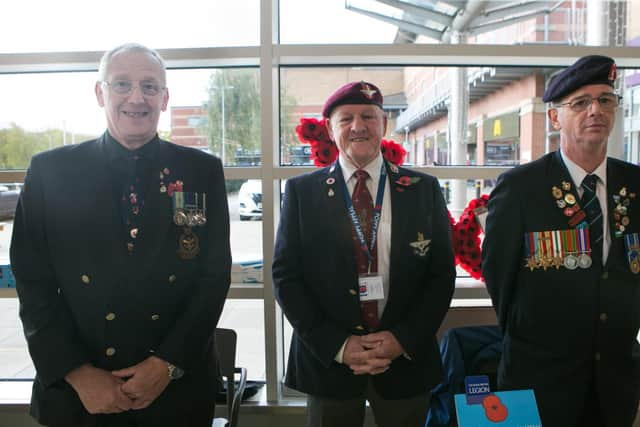

“I used to get up at three o'clock on Poppy Day and was in town by 4am to catch the shift workers coming off, or going on to, work. I used to leave all my poppies for the day and a number of collecting boxes in the walkway at the side of Cockaynes on Snig Hill and just take what I could carry, to meet the various buses coming from and going to the big steel works; the pits, the hospitals etc.
“I, and the poppies and collecting boxes which I had left outside Cockaynes, they were perfectly safe - no one, but no one, would have attacked or robbed a poppy seller or collecting tins in those days.
Advertisement
Hide AdAdvertisement
Hide Ad“Everyone, even the worst criminals had absolute respect for our servicemen and for the people, like myself, collecting for their welfare.
“How different it is now when we have to attach our tins by chains to the tables where we are collecting.”
Patricia described the Royal British Legion as the “custodians of remembrance”.
"We are at the forefront, and the poppy appeal brings us all together,” she said.
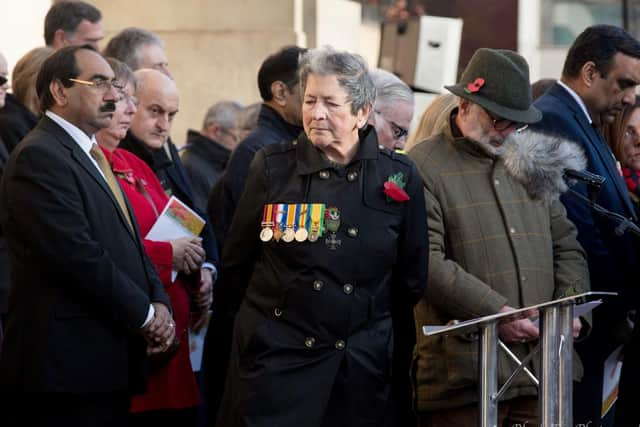

Advertisement
Hide AdAdvertisement
Hide Ad“And without the British Legion it wouldn’t have quite the impact it does.”
Patrica feels strongly about people who served in the armed forces and died but also those who returned.
“My mum never knew her father. She was five months old when he was killed.
“My grandma lost two brothers and a husband in six months. My family has lost quite a lot of people,very close family in both world wars.
Advertisement
Hide AdAdvertisement
Hide Ad“It’s not only about the people who died, to me everyone who has served offered to give their lives for this country, and we should remember that.
“For some, that offer was taken up, others survived thankfully, but they were all brave, not just the ones who died.
“It’s also about the ones who survived and came back, and saw some terrible sights.
“The British Legion does a lot of unsung work, with people who’ve seen these sights, and just need a bit of help to get over it,” said Patricia.
Advertisement
Hide AdAdvertisement
Hide AdShe would like people to know more about the work the RBL does and where the donations go.
“When we talk to people, when we’re selling poppies, a lot of them just put their money in the box.
“They don’t really know what they’ve put in for, apart from buying a poppy because it’s the done thing.
“When we talk to them, they say ‘we didn’t realise’.”
She says the poppy appeal collects money for those who need help but also informs people as to what happened in the wars and what is being done to stop it happening in the future.
Advertisement
Hide AdAdvertisement
Hide AdThe year 2018 marked 100 years since the end of the First World War, which started a conversation in schools about what the Legion does.
“I’ve been into a number of schools in Sheffield, as have other Legion members,” said Patricia.
“Talking to the children, and they now know a lot more about it now, because they’ve been taught about it in schools.”
The Royal British Legion now has a junior membership for children between 12 and 18.
Advertisement
Hide AdAdvertisement
Hide AdOne of Patricia's greatest honours was being Standard bearer.
Patricia said: “Standard bearer is the greatest honour you can have. I carried that standard for 20-odd years.”
But she is sad that in some areas the Legion is in decline. She accepts that it is an ageing organisation, but also says young people’s lack of knowledge is also a factor.
Patricia said: “Basically we stand for Remembrance, for comradeship, and for comrades who have fallen on hard times.”